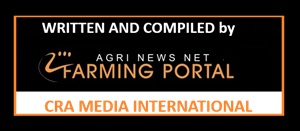South Africa’s wine industry is poised for a robust recovery in 2025, with early projections signaling an optimistic outlook.
According to SA Wine and Vinpro, grape yields are expected to rise by 11% compared to 2024’s below-average harvest, reaching an estimated 1.244 million tonnes. This rebound is a welcome development for an industry navigating global market fluctuations and local challenges.
The sector’s impact extends far beyond exports. Domestically, it is a significant economic driver, particularly in the Western Cape. A 2022 study by the SA Wine Industry Information and Systems (SAWIS) highlights that the wine industry sustains over 270,000 jobs and contributes R56.5 billion to the national GDP. These figures underscore the sector’s role as a cornerstone of employment and economic activity in the region.
As South Africa’s wine industry gears up for a stronger 2025, its blend of increased production and substantial socio-economic contributions positions it as a key player in both local and global markets.
South Africa’s wine sector is a cornerstone of the nation’s economy, with industry leaders projecting a robust recovery in 2025. Early forecasts from SA Wine and Vinpro estimate an 11% increase in grape yields, reaching 1.244 million tonnes, following a below-average harvest in 2024. This rebound comes at a pivotal moment as the sector capitalizes on export opportunities and strengthens its global presence.
 Stuck between vine and wallet: The cost of modern wine farming on the farmer
Stuck between vine and wallet: The cost of modern wine farming on the farmer
The wine industry is a critical driver in the South African economy,” highlighting the need for stronger agricultural value chains to ensure market access for wine farmers and cellars. The summit underscored the sector’s role in rural employment and regional economies, with a 2022 SAWIS study noting that it supports over 270,000 jobs and contributes R56.5 billion to national GDP, primarily in the Western Cape.
The recovery aligns with a record year for South African agricultural exports, which reached $13.7 billion in 2024, a 3% increase from the previous year. Wine remains a top contributor, alongside citrus and grapes, bolstered by trade agreements like the African Growth and Opportunity Act (AGOA) and partnerships with the European Union.
South Africa’s wine industry, with roots dating back to 1659, has evolved into a global powerhouse, blending Old World traditions with New World innovation. Renowned for its diverse terroir, unique grape varieties like Pinotage, and exceptional quality, the country is home to some of the world’s finest wine producers.
South Africa’s wine producers shine due to:
Diverse Terroir: From Stellenbosch’s granite soils to Swartland’s schist and Hemel-en-Aarde’s cool climate, the country’s landscapes support a range of styles.
Signature Grapes: Chenin Blanc, Pinotage, and Cabernet Sauvignon thrive, alongside Syrah, Chardonnay, and Sauvignon Blanc.
Innovation: Post-apartheid investment and flying winemakers introduced modern techniques, enhancing quality.
Value: Wines like Kanonkop’s Paul Sauer ($60) and Boekenhoutskloof’s Semillon ($34) rival global peers at lower prices.
Sustainability: Producers like Hamilton Russell prioritize biodiversity, while others focus on old-vine preservation.

DISCLAIMER
The views and opinions expressed in this program are those of the writers and do not necessarily reflect the views or positions of any entities they represent. The information contained in this website is for general information purposes only. The information is provided by CRA and while we endeavour to keep the information up to date and correct, we make no representations or warranties of any kind, express or implied, about the completeness, accuracy, reliability, suitability or availability with respect to the website or the information, products, services, or related graphics contained on the website for any purpose. Any reliance you place on such information is therefore strictly at your own risk.















